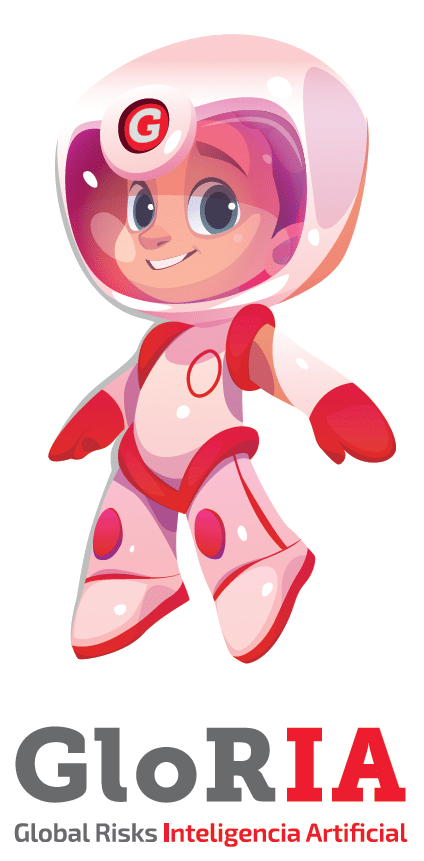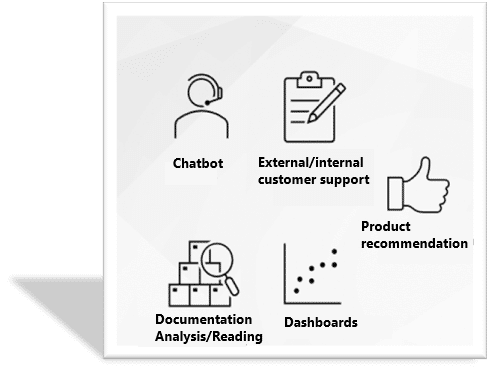
Data, data, data… How AI helps us in managing global risks


Esther Cerdeño
Deputy Manager of Processes
MAPFRE Global Risks | MAPFRE RE
“AI systems are human-createdtools that interact with humans in human-centric tasks, and their results must be supervised by humans.”
Major companies today face a significant dilemma regarding how to respond to the emergence of Artificial Intelligence (AI). Questions arise, such as: Is it really essential to start working on AI projects? What are the tangible improvements seen in companies that are implementing AI? Which areas would be most advisable to start with?
The current surge in AI is believed to be driven by the vast amounts of data stored in systems, advancements in supercomputers, and improvements in algorithms. These factors enable progress in areas such as analysis, interpretation, and information prediction within shorter time frames.
At MAPFRE Global Risks, process automation efforts began in 2018 with the implementation of Robotic Process Automation (RPA), which led to the development of GloRIA.
Over the course of five years, a total of 69 application processes have been created within MAPFRE Global Risks and MAPFRE RE.

By the end of 2023, a new phase was set to begin, building on the progress made thus far by incorporating activities related to Artificial Intelligence (AI).
AI AND DATA. TWO INDISSOLUBLE WORLDS
When it comes to AI, one thing is essential: Data. As soon as an initiative arises, and we begin designing the use case, the first issue to address is the source of the information.
-
- Data is the foundation of AI, a crucial element in the decision-making process within a company. It’s vital to have an appropriate Data Governance structure in place, ensuring that both structured and unstructured information is reliable. The role of Data Governance is to ensure control and quality.
- AI functions similarly to the human brain—it works with information, applies algorithms, and produces results. The more reliable the data, the greater the potential to generate high-quality, predictive, comparative, and generative reports.
- The results AI produces from company data will be validated by people; decision-making cannot be left entirely to machines, but AI will undoubtedly assist us in making those decisions.
AI systems are human-created tools that interact with humans in human-centric tasks,
and their results must be supervised by humans.
Without DATA, there is no AI.
AI GOVERNANCE -> AI SYSTEMS <- DATA GOVERNANCE

HOW TO EVALUATE THE IMPACT ON BUSINESS
Before starting any AI-related project, it’s advisable to undertake a series of activities aimed at achieving an optimal and valuable outcome for the company:
-
- Define the use case, objectives, and benefits of using AI.
- Analyze the amount of information (Quality Data) available.
- Develop a Business Case, based on:
- Volumetrics
- Costs of participants, implementation, maintenance, and infrastructure.
- Analyze the Regulations (EU approved in May 2024). Consider Ethical AI. Ensure that AI systems are secure, transparent, traceable, and non-discriminatory.
The MAPFRE AI Responsible Use Guide - Validate the level of risks.
- Avoid biases in the data or create rules to prevent them.
- Conduct a Proof of Concept (PoC).
- Based on the results of the PoC, evaluate the accuracy rate, data quality, and take into account potential hallucinations.
The results not only assess cost reduction but also focus on improving quality and identifying new competitive opportunities.
APPLICATIONS TO GLOBAL RISKS / REINSURANCE BUSINESS
Directly applicable to our business, several initiatives are underway:
-
- Generative AI: develop standard documents with direct connection to systems from various formats and sources of information. Case of MAPFRE RE, LLM FOR EXCEL, generation of uniform files according to Geolocation Portal template. Based on LLM/GPT/PYTHON Technology. The PoC achieved an accuracy rate above 75%. The business case proved positive starting from the second year.
- Generative AI: Analysis and comparison of documents in natural language. Interpretation of clauses.
- Management of mailbox content. Extraction and classification of documents. The Enterprise Document Management System (EDMS) will be used.
In all three cases, the objectives were cost reduction, operational optimization, and quality improvement.
Other initiatives that will be launched in the coming months include:
-
- SLIPS comparison.
- Dynamic-smart health questionnaire.
- Image recognition for detecting potential claims.
- ChatBot, questions in natural language, receiving answers based on information from various company documents or databases.
- ChatBot:
- For project planning or summaries related to email threads.
- To suggest report writing based on the recorded information.
ACCORDING TO GARTNER
Generative AI is transforming the world and will continue to transform it over the next five years.
We must evolve, explore various use cases within the company, and conduct a thorough risk and outcome analysis.
For any AI-related initiative within the unit, you can contact the Governance Area of MAPFRE Global Risks / MAPFRE RE (MAPFRE GR Data Governance | mapfre.mgr.gobiernodeldato@mapfre.com) which will help you, along with the Corporate Areas, to move it forward and analyze its feasibility.
